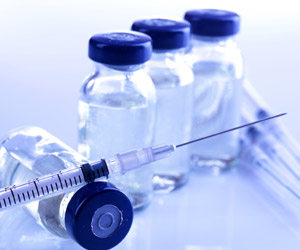- Psoriasis is an autoimmune disease that is characterized by patches of abnormal skin.
- Psoriasis is often marked with inflammation and proliferation of cells like cancer.
- Histone deacetylase (HDAC) inhibitors used for the treatment of cancer could be an effective therapy for psoriasis.
The research study was published in the Journal of Investigative Dermatology.
The research team knew that AQP3 levels were found to be lower in psoriasis than in the healthy skin. The protein could help skin cells to proliferate, differentiate and also to get into the right location of the body. This could also aid in skin’s hydration, wound recovery and elasticity.
Histone deacetylase (HDAC) which was found to suppress AQP3 also helps to regulate gene expression and protein function.
Our immune system plays a major role in psoriasis. However, current treatments could generally suppress the immune response and increase the risk of infections like cancer. Therefore, the research team hoped that they could one day directly enhance the presence of AQP3 or its key cargo glycerin.
Psoriasis is marked by inflammation and excessive proliferation of cells like cancer. These clues made scientists think about the treatment potential of HDAC inhibitors.
When a broad-acting HDAC inhibitor are introduced to normal skin cells or keratinocytes. They found that the expression of AQP3 went up within 24 hours.
Choudhary also said, that p53, natural tumor suppressor could support cell differentiation and help HDAC inhibitor enable more AQP3 and more glycerin.
The research team also found that overexpressing the p53 by itself will not result in increased functional levels of AQP3.
HDAC Inhibitor
The Food and Drug Administration has approved the first HDAC inhibitor, suberoylanilide hydroxamic acid, or SAHA to treat cutaneous T-cell lymphoma with symptoms like dry, itchy skin and enlarged lymph nodes.
Bollag said, "We think this is one of the ways it works."
Several other HDAC inhibitors may also suppress the HDAC3 that were most effective at increasing the AQP3.
Aquaporin 3 Channel
The aquaporins are skilled in hauling glycerin which is a key ingredient in skin lotions and serves as a backbone for many lipids.
Glycerin could help the skin cells mature properly. And inside the skin cells, the presence of phospholipase D enzyme that converts fats or lipids in the external protective cell membrane into the cell signals.
Aquaporins could hand off glycerin and produce phosphatidylglycerol that could aid in skin cell differentiation.
Bollag said, "We think phosphatidylglycerol is the key."
"If you don't have enough, you may have psoriasis."
The research team also found that AQP3 that is present in psoriasis are often immature and located in the cytoplasm instead of the cell membrane.
This location could make it difficult to have a normal mature function of transporting glycerin, water, and other substances through the membrane.
Bollag said, "If you use antibodies to visualize where AQP3 is in the keratinocytes, you will see it nicely outlining the cells because it's right there on the plasma membrane."
"So clearly it's normally expressed in keratinocytes but the fact that we can upregulate it even more with an HDAC3 inhibitor suggests that normally HDAC3 keeps it in check."
If psoriasis patients opt for HDAC inhibitors, low doses or topical application, they may also avoid side effects, like nausea.
HDAC inhibitors may help to fight cancer by temporarily loosening the DNA, increasing the expression of tumor-suppressing genes and also making the tumors more vulnerable.
HDAC inhibitors were explored for treating neurological diseases such as Huntington’s disease.
Limitations
It is hard to grow adequate number of psoriatic cells for scientific study No real animal model of psoriasis is available.
Further, the research team may also develop a model using the topical drug for genital warts. Since patients could develop psoriasis.
References
- Vivek Choudhary, Lawrence O. Olala, Karen Kagha, Zhi-qiang Pan, Xunsheng Chen, Rong Yang, Abigail Cline, Inas Helwa, Lauren Marshall, Ismail Kaddour-Djebbar, Meghan E. McGee-Lawrence, Wendy B. Bollag. Regulation of the glycerol transporter, aquaporin-3, by histone deacetylase-3 and p53 in keratinocytes. Journal of Investigative Dermatology, 2017; DOI: 10.1016/j.jid.2017.04.031
Source-Medindia














